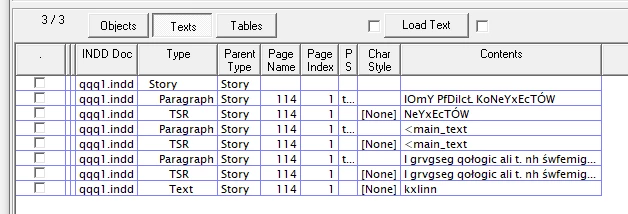TextStyleRange bug ? CC 2023 v18
Lets say we have some text:

and there are some different formattings - doesn't matter if local or CharStyles.
Now, lets iterate through TextStyleRanges collection of the SELECTED text.
Above example have 4x TSRs:

2nd and 3rd TSRs can be correctly referenced & compared (I'm checking indexes of 1st and last characters) but for simplification:
myText = myText.TextStyleRanges.Item(1).Texts.Item(1)
BUT - returned parent TSR for the 1st text - "NeYxEcTÓW"- even when I've not selected whole TSR - is the same as myText - in this case, parent TSR should be the same as the whole paragraph - "lOmY PfDiIcŁ KoNeYxEcTÓW" - so in the screen above it should be "Text" instead of "TSR" in the TYPE column.
parent of the 4th TSR is returned correctly as "kxlinnacipm" and I have "Text" in the TYPE column.
Can someone verify if you have the same problem - that parent TSR is returned correctly when you select "start" of the TSR - but incorrectly when you select "end" of the TSR.
Parent Paragraph - myText.Paragraphs.Item(1).Texts.Item(1) - doesn't have this problem.
